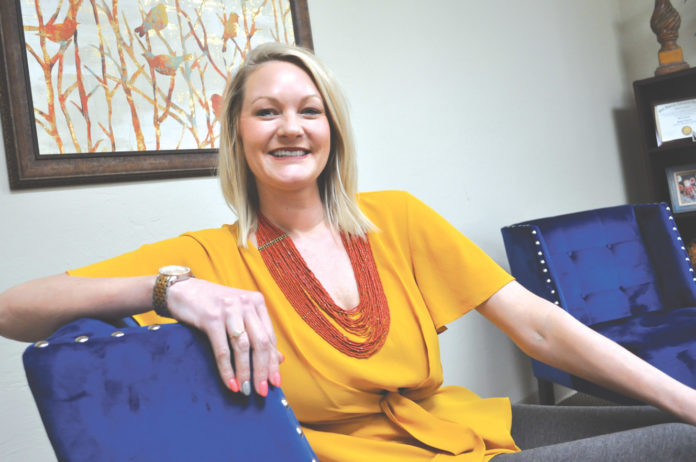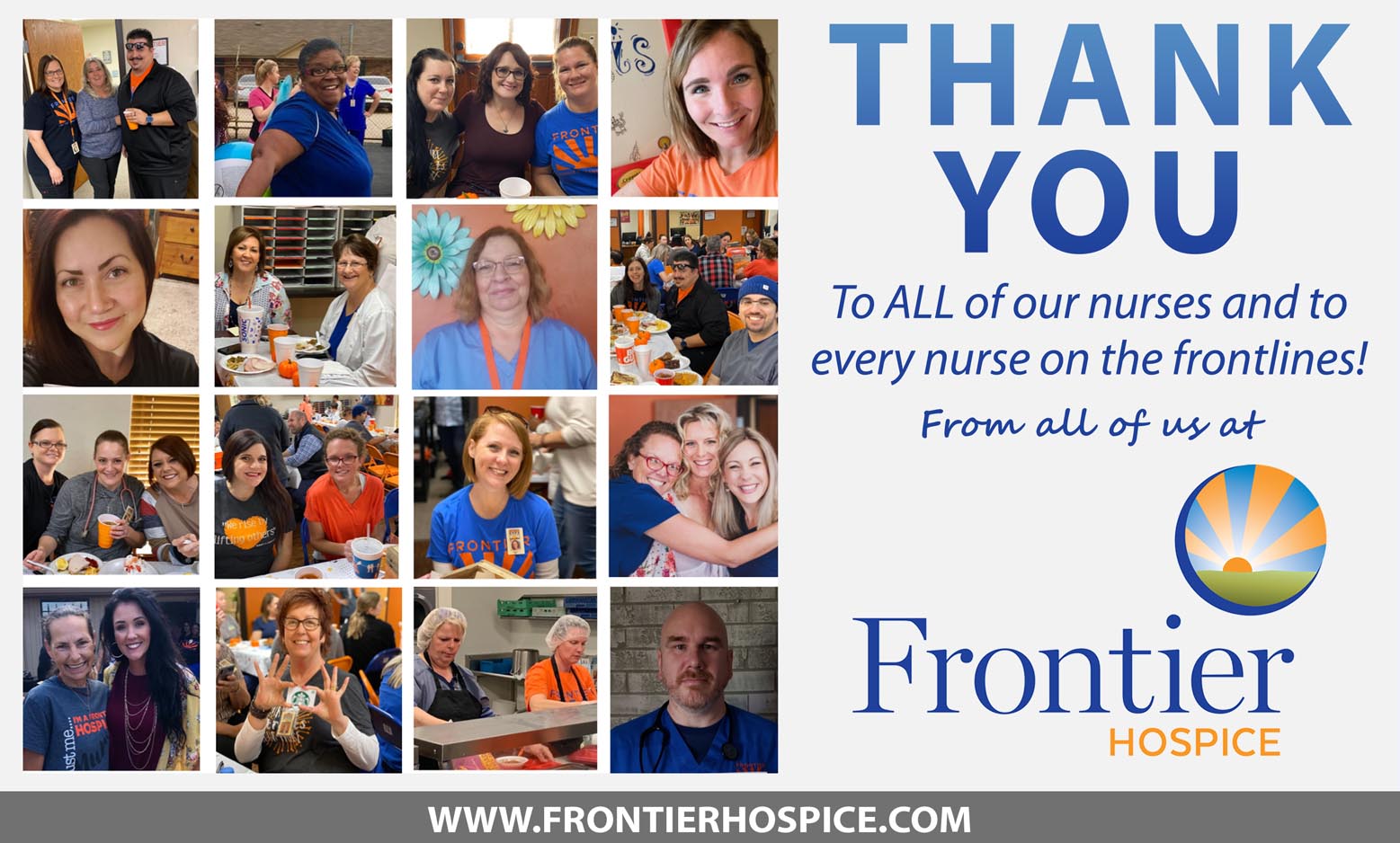Mandi Schulz has worked for and helped lead Frontier Hospice for a decade now.
She’s seen changes in the industry for sure. And while Frontier’s level of care has never wavered, she’s proud to say her company has been forward-thinking enough to change for the better.
“Really it’s my passion for the business,” the executive director said of what’s kept her with the company. “And Frontier is my family.” Frontier has always provided excellent Hospice services, but saw a gap in healthcare that they wanted to help fill.
One of those changes is a unique community outreach program that brings Frontier’s vast resources to clients when they need them.
SMOOTH TRANSITIONS
Almost four years ago was when Schulz and Frontier began their Transitional Care program. The idea was borne out of community need and hospital transition of care meetings.
Hospital administrators were asking for ways providers could help curb readmission rates.
Schulz said. “With our unique program, we are able to assist patients that other programs are not able to help. These are people far away from that hospice realm, newly diagnosed or just passed through the healthcare system with nowhere else to turn.”
“They’re high risk for readmission and they have needs. That was the gap.”
The program allows Frontier to help meet community resource needs.
“We go into people’s homes and help them with resources.” Schulz said of the program staffed by nurses and social workers. “Our heart is not just taking care of the terminally ill patient but the community outreach.”
Maybe it’s working with clients to help them find help at home. Maybe it’s taking the time to help fill out an Advantage program waiver that will help them pay for the additional care they need.
BRIDGING GAPS
Where Schulz and her Transitional Care team can help is when a loved one experiences a life-altering event or diagnosis. For many patients the next step out of a hospital is to a skilled nursing facility.
“Because of the nature of transitional care we can meet with the family and help that transition along while they are in skilled,” Schulz said. “The need may not be for hospice they just need to help with home health – maybe they’ve declined it, which is a huge risk.”
All too often those patients who do refuse help at home will wind up back in the ER, further setting back their healing process and greatly increasing the chances they will no longer be able to live independently.
“At that point we’re connecting the dots and following up with the primary care provider,” she said.
The program is designed to be a 30-day plan but if there’s still a need the Transitions program continues.
We stay in contact.
“What case managers at hospitals have really discovered is we can connect those dots and make their job a little easier.”
“I think one of the main things we do is finding the ‘yes’ in every scenario,” Schulz said. “That is what we do different. We make decisions based on the information we have and what’s best for the patient at the local level.”
Advanced care planning with a social worker is another service offered in the Transitional Care program.
“The feedback we get all the time is ‘I wish somebody else would have been this honest with me. If I would have had the information I might have made different decisions,’” Schulz said.
What Frontier has found through the program is that multiple providers are requesting the service. We have become an excellent community partner with other providers while making our mission of outreach to the most disenfranchised through this pro bono mission. Hospitals and skilled nursing facilities have a vested interest in preventing readmissions as their reimbursements can be seriously impacted.
Physicians are looking to keep their patients as independent as possible.
Schulz sees the program as providing a safety net for those who might slip through the cracks. Frontier is on the forefront of providing a program that is unique in helping members of our community stay as independent as possible and make educated decisions regarding their own healthcare decisions.
Those within 60 miles of Frontier’s central Oklahoma offices may utilize the service. Visit us at www.frontierhospice.com














